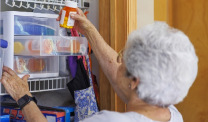Advice for Women with Mesothelioma from a Survivor
Cancer & CaregivingWritten by Tamron Little | Edited By Walter Pacheco

I’m sure one thing we can all attest to is that women are strong humans. Not to say that men aren’t, but women have some unique qualities that make us able to withstand a lot of things.
But what if, like me, you’re a woman who was diagnosed with mesothelioma? A recent study of mesothelioma statistics from Canada showed that the percentage of women with mesothelioma has almost doubled in the past 30 years.
Even though women have fought over the years for equal rights and a right to be treated fairly, there is still a bit of bias toward women in some areas, including health care. One thing that pops into my mind is the James Brown song, “It’s a Man’s Man’s Man’s World.”
Early Misdiagnosis Delayed Treatment
Because of my age, I’m considered an atypical mesothelioma survivor. Getting an accurate diagnosis was not easy. A fibroid tumor was what they said I had, and that it would go away on its own.
At the time I was young, unmarried and pregnant. I asked the doctors if they were sure it couldn’t be something else, and they all told me, “Yes, you will be fine, it’s normal in African American women.”
Oh really? So a tumor attaching itself to the lining of my stomach was normal? After months of watching it and taking birth control to shrink it, which didn’t work, I was later diagnosed with peritoneal mesothelioma.
The first oncologist I was referred to wasn’t helpful at all. I had my list ready at every appointment, asking questions about mesothelioma because I knew nothing about it. I don’t think he knew, either.
I wasn’t given any type of treatment options and found that to be strange. When I did ask questions about the plan of care and the things I needed to do, it was as if they were brushed off. And his answers were always, “We will wait and see.” Wait and see for what?
I do honestly think if I was a man my treatment would have been different, but given that I was young and a woman – what did I know? It felt as if I was searching for hope but wasn’t given any.
Being Your Own Best Advocate
It took my mother’s coworkers finding me a specialist to get the breakthrough I needed. This doctor was very knowledgeable about peritoneal mesothelioma and had treated it before. He sat down and talked with me and my worried family and answered all my questions.
The specialist gave us the answers we were looking for, as well as hope! He was genuine and broke down every aspect of the plan of care for me. I felt at ease and ready to tackle what was to come.
This experience has taught me a lot about my body and not to be fearful when it comes to gaining knowledge about your health and plan of care, no matter how small physicians may make you feel.
Here are some tips that are very beneficial for women with mesothelioma so they can feel heard and seen while dealing with the disease.
- Write down your questions and concerns. At every appointment, go down the list with your doctor.
- Don’t be afraid to ask questions. If you don’t understand anything, let them know.
- Be your own advocate. You know what’s best for you! If you feel as if something isn’t right, address it.
- Get a second opinion. Sometimes as women we feel we’re going to make the doctor feel bad if we get a second opinion, but don’t let that stop you from getting one.
- Do your research. Research what you can about your disease. This will allow you to be more informed about the different options you may have.
The tips above were just some that I came up with that truly helped me. To this day I still utilize my own advice and it has helped doctors find things that they may have ignored if I hadn’t said anything.






